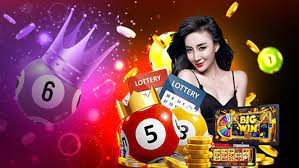The Joker card is one of the most intriguing and versatile cards in the deck, often viewed as a wildcard that can take on the joker card balance. Its unique characteristics and the mystique surrounding it have made it a staple in various card games, from poker to rummy, and it has become a symbol of unpredictability and surprise.
Historical Origins
The Joker card’s origins can be traced back to the United States in the 19th century. It was created for the game of “Euchre,” which was a popular trick-taking card game. The Joker was initially introduced as a trump card, serving to enhance the gameplay and create a new strategic dimension. Over time, its use spread to other card games, leading to its current role as a wildcard.
Interestingly, the design of the Joker card has evolved over the years. Early versions featured simple illustrations, while modern Jokers often display elaborate designs, including colorful motifs and whimsical characters. The imagery typically reflects themes of comedy and folly, further enhancing the card’s enigmatic appeal.
Role in Card Games
In many card games, the Joker acts as a versatile wildcard. For example, in poker, it can be used to complete a flush or a straight, making it an invaluable asset to players. Its ability to represent any card creates an unpredictable element, as players must anticipate not only their own hands but also the potential hands of their opponents.
In games like rummy, the Joker can serve as a substitute for any card, facilitating the formation of sets and runs. This adaptability adds an extra layer of strategy, as players must decide when to utilize the Joker for maximum benefit. The element of surprise associated with the Joker often leads to exciting gameplay, keeping players on their toes.
Symbolism and Cultural Significance
Beyond its role in games, the Joker card holds deeper symbolic meaning. It embodies themes of chaos, duality, and transformation. The character of the Joker often represents the trickster archetype found in folklore and mythology, challenging social norms and conventions. In this sense, the Joker can be seen as a reflection of the unpredictability of life itself, reminding us that not everything can be anticipated or controlled.
The Joker has also made its mark in popular culture, particularly in literature, film, and art. The character of the Joker, as depicted in various adaptations of Batman, highlights the tension between order and chaos. This portrayal resonates with audiences, reinforcing the idea that the Joker represents not only humor but also a darker, more complex side of human nature.
Conclusion
The Joker card is more than just a playful addition to a deck of cards; it is a powerful symbol of versatility, unpredictability, and the complexities of life. Its unique characteristics have made it a beloved element in numerous card games, while its cultural significance continues to evolve. Whether you are a casual player or a serious card enthusiast, the Joker remains an enigmatic presence that adds excitement and intrigue to the game. As you shuffle the deck and draw your cards, keep an eye out for the Joker—it just might turn the tide in your favor.


